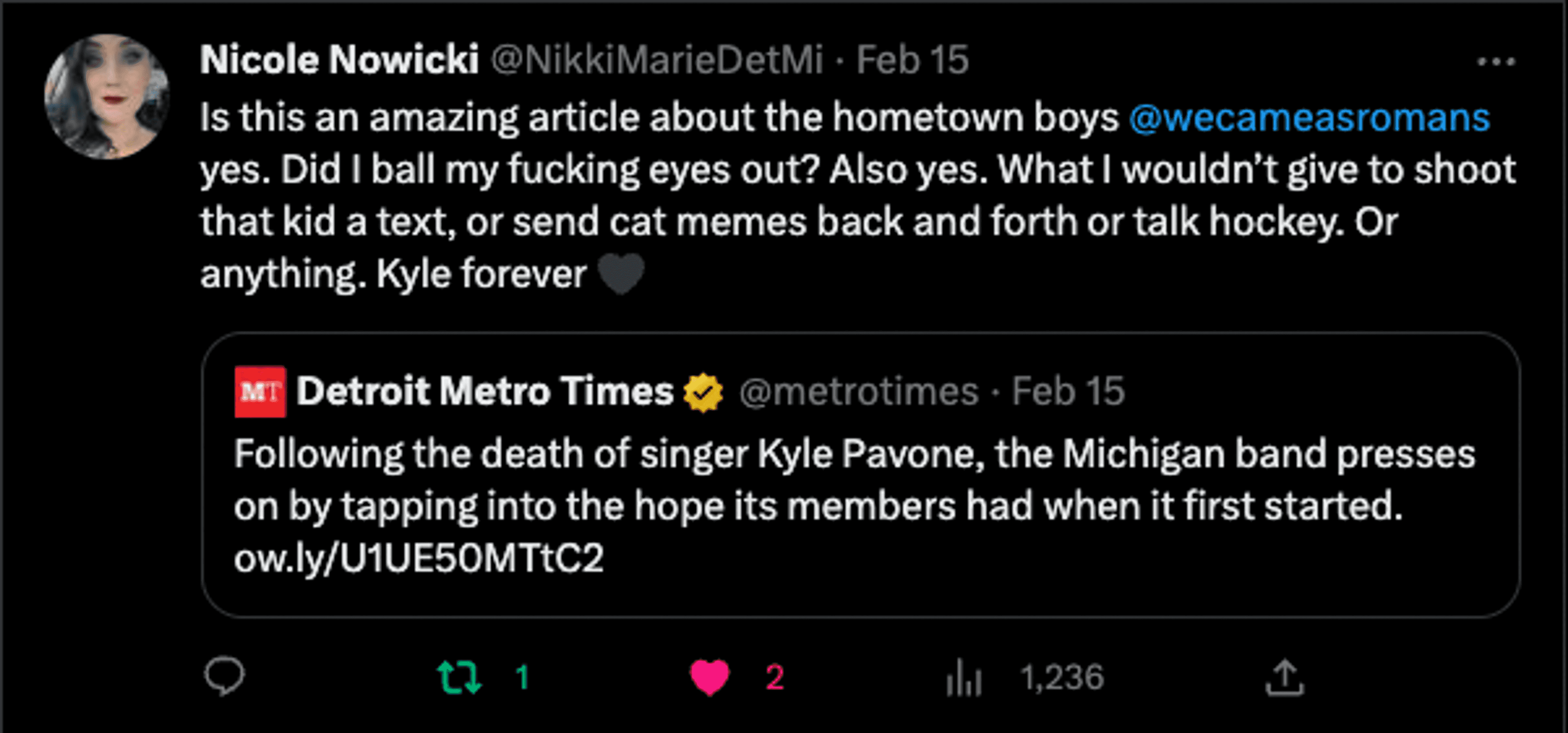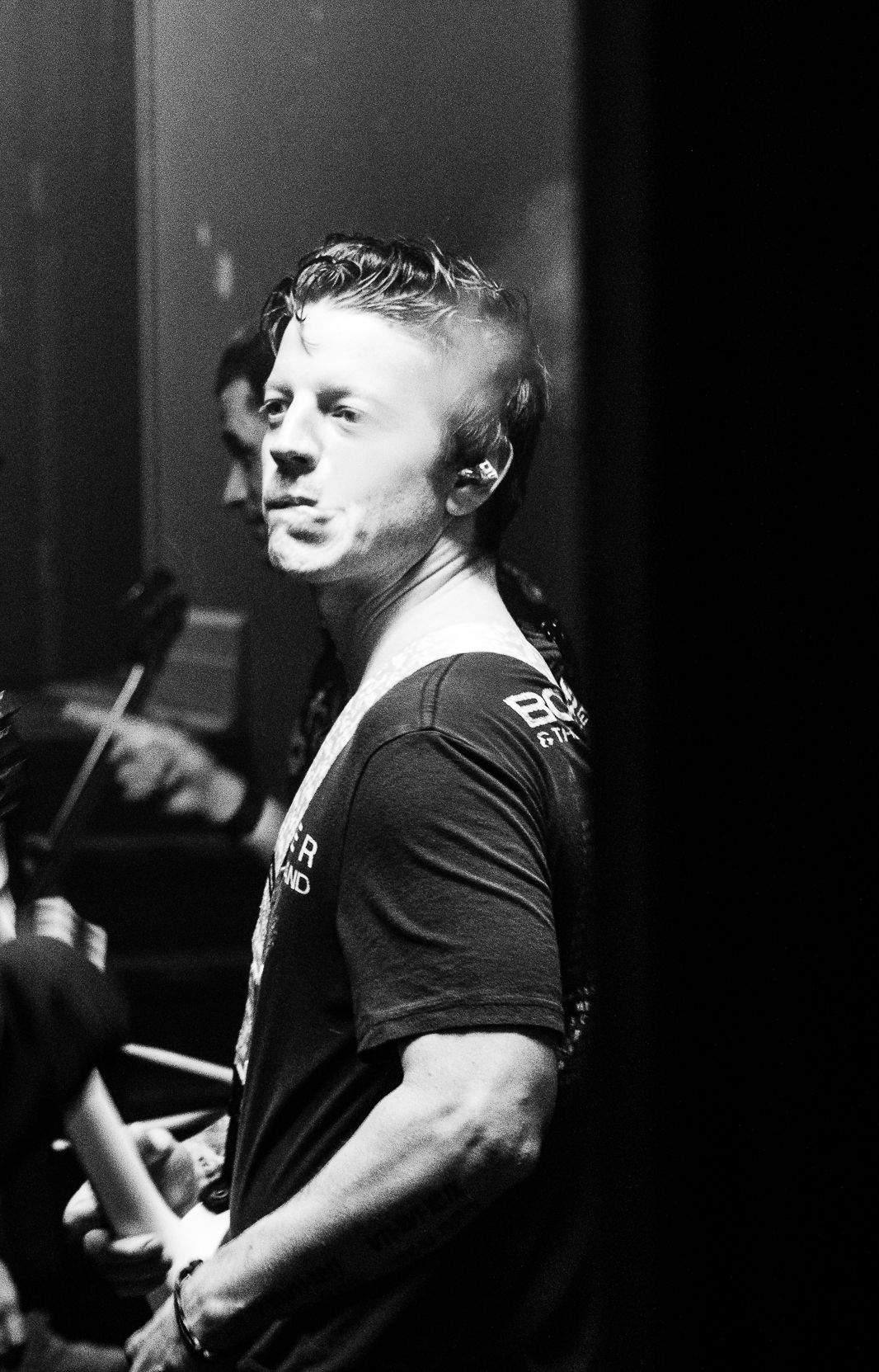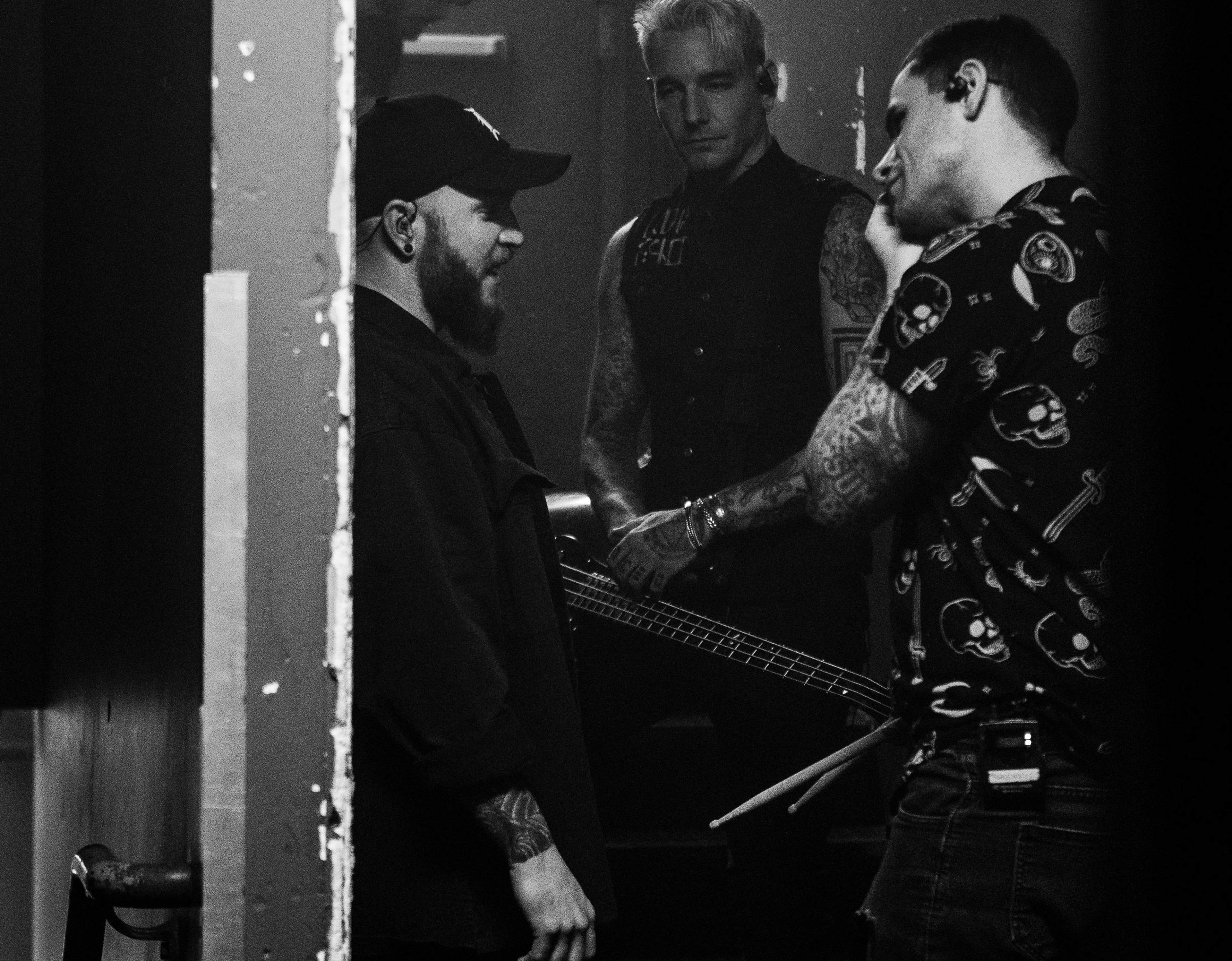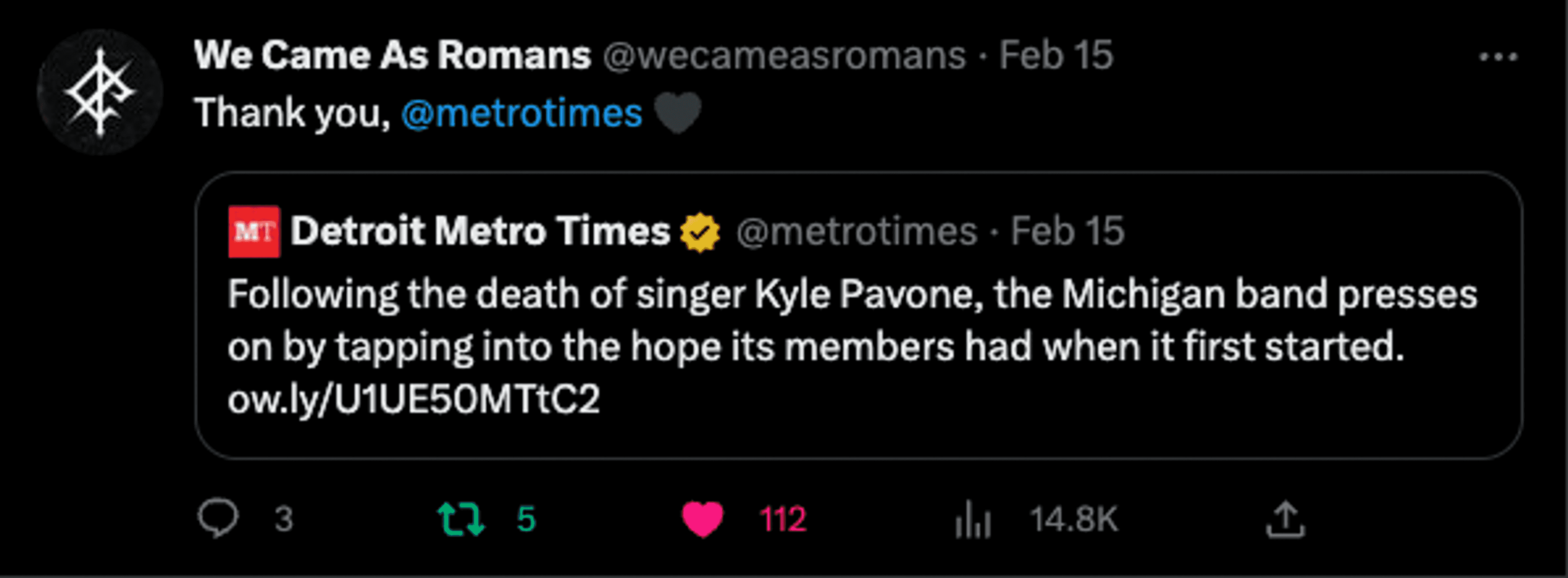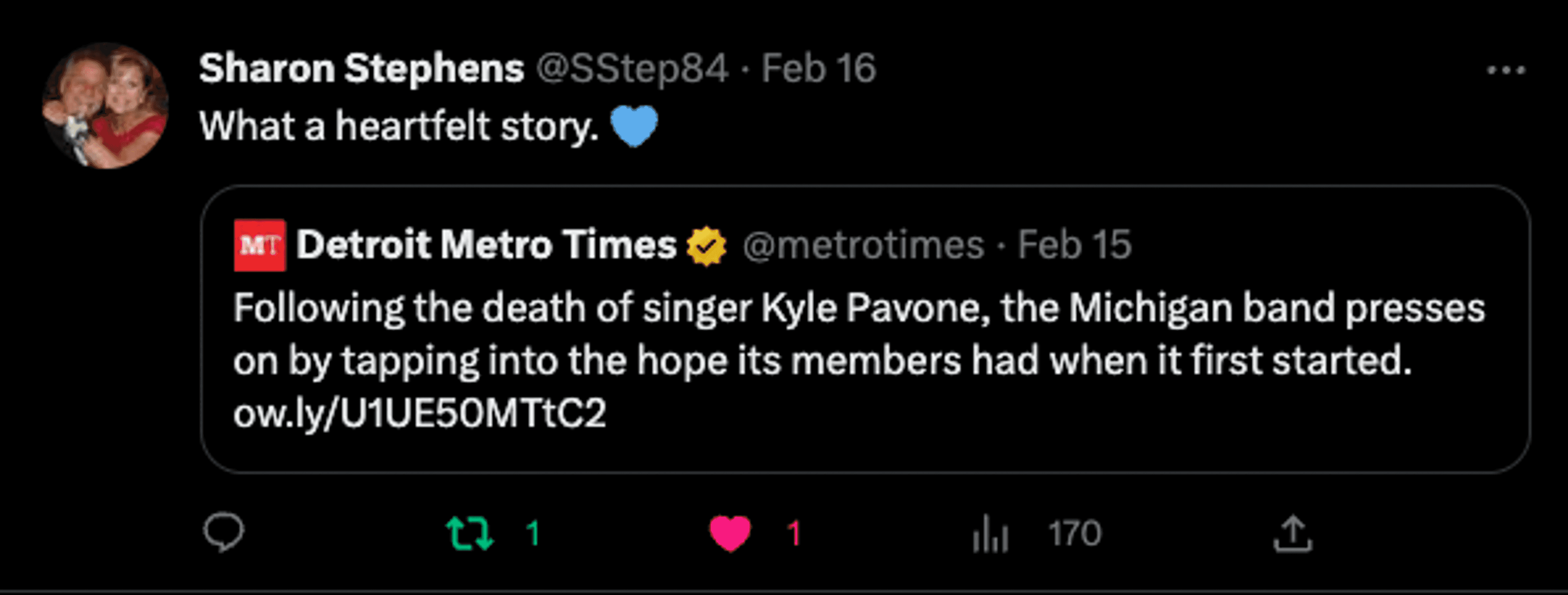We Came As Romans was on the brink of collapse
“We almost broke up,” drummer David Puckett tells Metro Times. “We didn’t know what to do."
The Troy-based metalcore band was prepping for what was supposed to be its comeback tour when tragedy struck: Singer Kyle Pavone was found unconscious following an accidental heroin overdose.
On Aug. 25, 2018, six angry kids from the suburbs became five, and music lost another voice before his time. Pavone was 28.
Hope has been one of the band’s core tenets since forming in the mid-aughts. But at that moment, it was impossible to find.
Project Details
I gotta admit something up front: metalcore isn't my thing. I cut my teeth on Slipknot and Slayer - not Chiodos and Atreyu.
WCAR's story of resilience against all odds drew me in immediately, though.
The fact that they're hometown heroes who've spent nearly 20 years working their asses off to shake the "local band" label pushed me to take on this cover story ahead of the final show of their biggest tour yet.
WCAR isn't my favorite band, but I've read enough articles about artists I love where the reporters clearly didn't care about the subject.
I know what that frustration feels like firsthand and was determined not to add to the pile.
Despite my initial apathy, I wanted to do right by WCAR's legion of fervently loyal fans and handle the delicate subject matter with the care it deserved.
Creative Process
It's hard enough getting people to care about heavy metal. That's saying nothing of a splintered-off subgenere.
So I took a humanistic approach to this longform warts-and-all profile, focusing on the people behind the music and how 15 years of touring and tragedy has affected them.
Unlike other pieces I've written for Detroit Metro Times, this one wasn't about an artist I was already intimately familiar with.
That meant research. Lots and lots of research.
Thankfully, WCAR took full advantage of the internet for promo from the outset, and did interviews with more press than you can fill a mosh pit with.
Spending entire afternoons watching Pavone interviews and performances I got a sense of him as a person and musician.
I also spoke with each surviving member for at least an hour over Zoom, getting them to open up to me - a complete stranger - about some of the darkest moments of their lives.
The guys were remarkably open, vulnerable and honest. They didn't sugarcoat Pavone's uglier habits, either.
I interviewed friends, former bandmates and Pavone's younger brother to paint the most complete picture possible.
I blasted WCAR's music at my house and in my truck for a week straight.
The Internet Archive played a pivotal role here too, giving me access to WCAR's old Myspace page and tour schedules.
Halfway through the reporting phase I pulled Pavone's death certificate to ensure the cause of death lined up with what his bandmates had disclosed.
In 15 years, I can't say anything I've written has affected me the way this piece did.
Poring over 100+ pages of interview transcripts and reading about the band's grief and loss for weeks on end made the writing process harder than I've ever experienced.
My empathy was a double-edged sword here, but ultimately helped me craft more thoughtful prose and take additional care with the topic at hand.
At one point, my editor Lee DeVito offered me a similar assignment after completing this one, a cover story on The Black Dahlia Murder.
Their singer took his own life in 2022, and the band admirably forged ahead.
I declined.
In The Pit
To cap off my work I shot WCAR's sold-out St. Andrew's Hall tour closer backstage and from the photo pit.
My images were featured on the venue's Twitter and Instagram accounts.
They're all over this case study too :p
“
The line about studded belts, women's skinny jeans, and Got2B Glued activated brain cells I forgot I had.
Lee DeVito, Detroit Metro Times Editor in Chief
“
If anyone writes another article about us, we want it to be you.
Dave Stephens, We Came As Romans vocalist
Editors: John Serba, Lee DeVito

